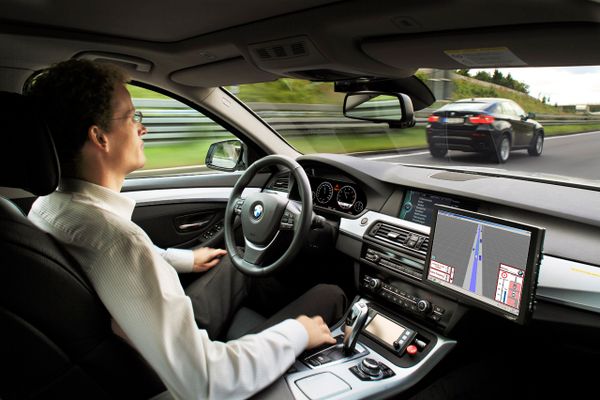Car Makers Place Use of Car, Customer Data on the Radar

Auto industry executives expect a major business model disruption by the end of this decade, with connectivity and digitalization as the most important trends that will hold through to 2025, a recent survey by KPMG shows.
Thirty-two percent of auto executives surveyed believe auto buyers trust OEMs (car makers) the most as the “owner” of the data generated from their vehicle. However, 54 percent of the over 2,100 customers surveyed say they trust only themselves with the data generated in their car.
“Customers are aware of the value of their data and the survey shows that for these stakeholders, cash is king,” said Dieter Becker, KPMG’s Global Head of Automotive. “When given the option to rank several response choices, 82 percent of the customer respondents across all age groups say that monetary benefits for their data is the number one/most attractive benefit desired; followed closely by ‘customer incentive schemes’ (75 percent), and individualized service and customer experience over the whole customer lifecycle (71 percent).”Â
Around 70 percent of auto executives say data use is in an early stage, and some say there is no usage at all.
“In order to meet their current needs, becoming a customer-oriented service provider is of utmost importance,” Becker said. “One way traditional car makers can add value and offer customized client experiences is by leveraging the massive amounts of data that both the car and its driver(s) produce.”
Auto executives responding to the survey predict that Toyota will have the largest market share among OEMs in the next five years, at 58 percent. Toyota has made the biggest leap ahead among OEMs’ moving from ninth place last year to first this year. Respondents place BMW and VW slightly behind, at 57 and 56 percent. Last year’s owner of the top spot, Hyundai, has fallen to fourth place this year with 50 percent of respondents expecting an increase in market share. Hyundai is followed by Ford at number five with 49 percent.
Most auto executives surveyed are optimistic and few expect a decrease in market share for any of the OEMs. Respondents see stability for most OEMs. For instance, while 34 percent of respondents expect Daimler’s market share to grow, 53 percent expect it to remain stable. This is similar for ‘new player’ Tesla, which is expected to increase in market share by 37 percent of respondents yet remain stable by 52 percent of respondents.
About 80% of the new generations of automobiles will be connected to the internet by 2017, from 25 percent already. CEOs have started speaking publicly about smart cars, and developers admit the security challenges facing the new market, according to Business Insights. Recent studies show electronic components now make up over 50% of the manufacturing cost of a car, with some cars now containing over 100 million lines of code, a clear source of worrisome security vulnerabilities.
tags
Author
Former business journalist, Razvan is passionate about supporting SMEs into building communities and exchanging knowledge on entrepreneurship.
View all postsRight now Top posts
How to Protect Your WhatsApp from Hackers and Scammers – 8 Key Settings and Best Practices
April 03, 2025
Outpacing Cyberthreats: Bitdefender Together with Scuderia Ferrari HP in 2025
March 12, 2025
Streamjacking Scams On YouTube Leverage CS2 Pro Player Championships to Defraud Gamers
February 20, 2025
How to Identify and Protect Yourself from Gaming Laptop Scams
February 11, 2025
FOLLOW US ON SOCIAL MEDIA
You might also like
Bookmarks








